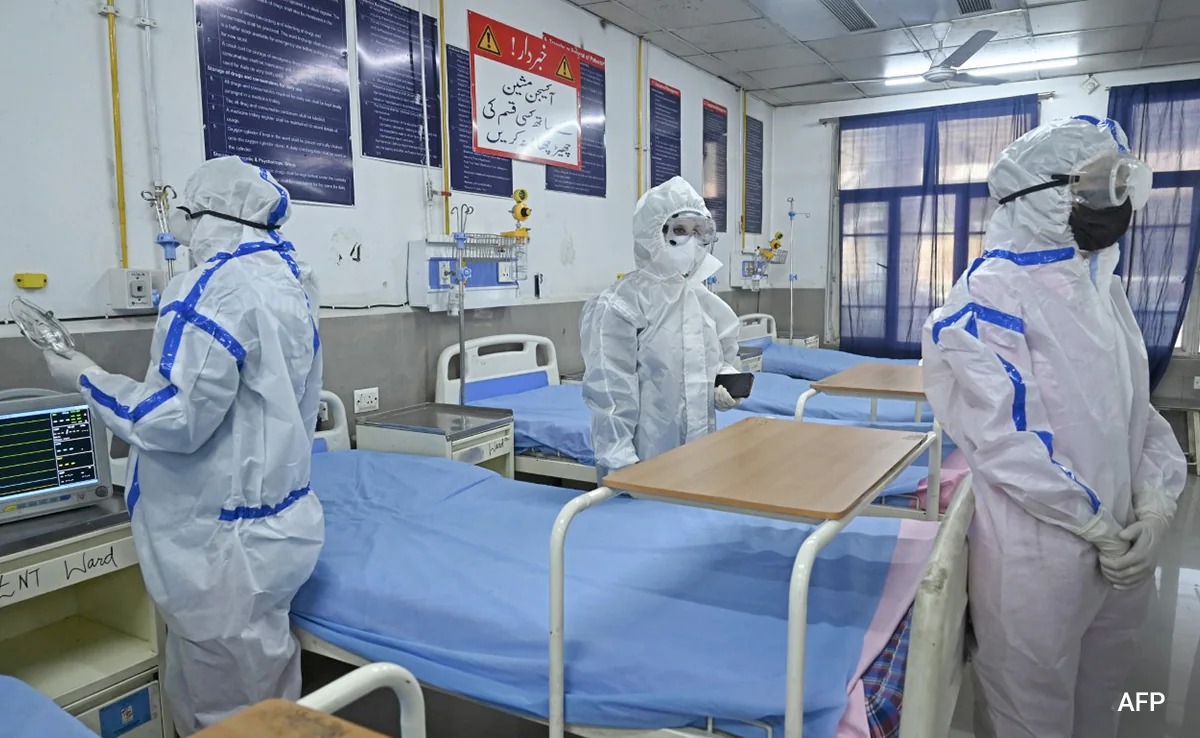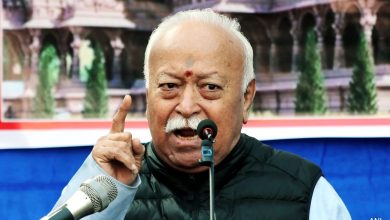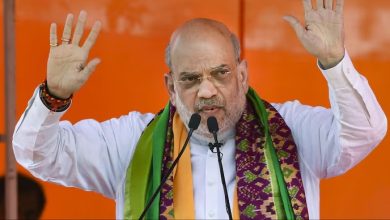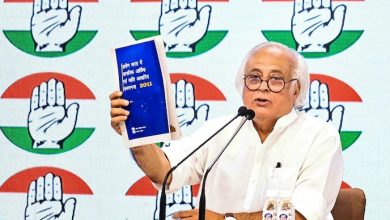“Hospitalisations Will Go Up As Covid Burden Increases”: Soumya Swaminathan

Over a year-and-a-half after India witnessed the Omicron wave, two eminent health experts have sounded a warning over the increasing Covid-19 cases in India in the wake of the JN.1 sub-variant of Omicron being detected in the country.
Dr Rajeev Jayadevan, Co-Chairman of the National Indian Medical Association Covid Task Force, said 30% of all patients with influenza-like illnesses who were tested have turned out to be Covid positive in the Kochi region in a span of about 24 hours. He also said that Covid cases have spread into the community and that his neighbour has also tested positive.
Dr Soumya Swaminathan, former WHO chief scientist has cautioned against dismissing Covid as a common cold, not just because of the people who fall severely ill, but because of the disease’s long-term effects, including increased risk of heart attacks, strokes and mental health problems.
Powered By
VDO.AI
Both experts, however, emphasised that the variant, while more transmissible, may not cause a high number of hospitalisations, partly because of India’s high vaccination rate. Dr Swaminathan also pointed out that India’s health systems have come a long way from how they were during the first wave in 2020 and the deadlier Delta wave in 2021, and the country is well prepared to handle an uptick in cases.
Dr Swaminathan also listed out the precautions that people can take and stressed on the need for the elderly and those with poor immunity to start masking up.
According to official data, India has seen 21 cases of the JN.1 sub-variant so far – 19 in Goa and one each in Maharashtra and Kerala.
On the spread of Covid, Dr Jayadevan, who posted a chart on X illustrating the rise in cases since November, said, “Over the past month or so, the number of Covid cases has been creeping up. But, as you know, testing in our country is quite low, close to zero in many places for many reasons… But if you look at the statistics as I posted on the graph from September, October, November and December, there is a sharp uptick sometime in November.”
“Before November, it is only around 1% of influenza-like illnesses showing positive for Covid, which is practically zero. But, from November onwards, we have had about 9%. And, in December, after the meeting that concluded last night, it was 30%. And this data is from multiple hospitals in the (Kochi) region. So this shows that Covid is taking a greater share of what we call influenza-like illness, which basically means things like respiratory problems, breathing trouble, cough, fever and body ache,” the doctor added.
Dr Jayadevan said that while JN.1 is considered the fastest-rising variant, it does not necessarily mean more cases but that it is “dominating the Covid landscape”. He also pointed out that while cases are increasing, people are being able to treat the symptoms at home.
To a question on whether there is a community-wide spread of the JN.1 variant, the Covid Task Force co-chair said: “It is very much in the community. My neighbour has tested positive just this evening. So it is everywhere… But it is not causing a huge surge in hospitalisation. So that’s different.
When Dr Soumya Swaminathan was asked about 30% of pneumonia cases in Kochi hospitals turning out to be Covid positive and the likelihood of this being replicated in other parts of India, she said, “We’ve been through this many times before, as you know, over the last four years. This is what we expected and this is what the WHO had talked about. Even when WHO Director-General Dr Tedros Ghebreyesus announced the end of the global public health emergency in May this year, he did say it is still a global health threat.”
“And that’s what we are seeing now. We’re seeing a new variant, the JN.1, which is a sub-variant of Omicron. So hopefully it behaves like Omicron, which was relatively mild. But what happens is that every new variant gets some properties of being more transmissible. It is able to evade or avoid the antibody responses that we already have in our system. And therefore it is able to create these waves of infection where it infects people who’ve already been infected before,” Dr Swaminathan added.
The former WHO chief scientist pointed out that the global health body has classified JN.1 as a variant of interest.
“Now, coming to India, as you mentioned, we’ve just started increasing the testing. So over the next few days, I think we will see more data coming from many states. Right now, it looks like a few states like Kerala, Karnataka, Maharashtra, perhaps Tamil Nadu, they are reporting an uptick of cases and high positivity,” she said.
Dr Jayadevan said vaccines may have helped keep Covid at bay since the last wave, but a concern arises when a variant is markedly different.
“For example, JN.1 is not like a one-step ahead variant. This is a multi-step ahead variant. We call it the saltation event in genetics, which basically means a pile of mutations suddenly occurring at one go,” he said.
On masking up, the doctor advised, “I would say if you are trapped in a situation where it’s ventilated, closed, crowded, you feel the air is still and there are people around you, it’s safer to wear a mask. If you are travelling in a vehicle with multiple people who you don’t know, wear a mask or at least roll your windows down.”
He also recommended wearing a mask in closed spaces with many people, especially for those who are elderly and immunosuppressed.
Dr Swaminathan said the symptoms of the new variant are fever, cough, loss of smell and loss of taste. She also pointed to persistent high fever, breathing difficulties, fatigue, inability to eat and a tendency to vomit as the warning signs.
She recommended masking up in a crowded place if people are vulnerable to infections and also stressed that people who are sick should wear a mask to protect others. For the vulnerable population, she recommended using pulse oximeters.





